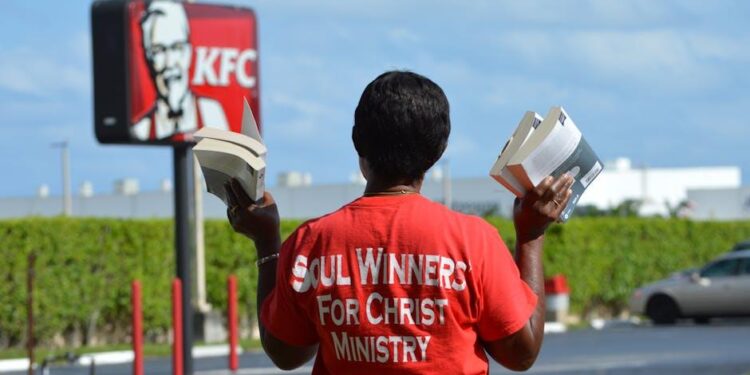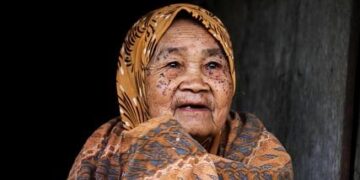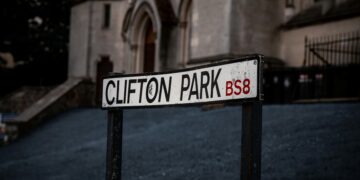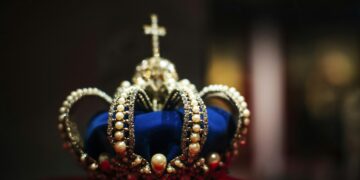Table of Contents
Introduction: The Paradox of America’s First Family of Television
For millions of television viewers in the 1950s, Lucy and Ricky Ricardo were the epitome of a loving, if comically chaotic, American marriage.
Week after week, from their apartment at 623 East 68th Street, they navigated zany schemes and sputtered frustrations that always resolved into a loving embrace, cementing their status as television’s first and most beloved family.1
Behind the scenes, however, the lives of Lucille Ball and Desi Arnaz—the real-life couple who portrayed the Ricardos—were a far more turbulent and ultimately tragic story.3
Their 20-year marriage was a paradox: a profound, once-in-a-lifetime love story locked in a constant, brutal struggle with personal demons, cultural differences, and the crushing weight of an entertainment empire they built to save themselves.5
The dissolution of their marriage on March 4, 1960, was not a simple event but the culmination of two decades of conflict.6
The very creation that was meant to be their salvation, the groundbreaking sitcom
I Love Lucy and the revolutionary Desilu Studios, contained the seeds of their undoing.7
The show was conceived as a desperate, brilliant strategy to keep a wandering husband at home, but the fame and pressure it generated only amplified the underlying issues that had plagued their union from the start.5
The story of their breakup is one of corrosive addiction, relentless infidelity, and the clash of two powerful, volatile temperaments.
Yet, to understand why they broke up is also to understand the remarkable, enduring nature of their bond.
Their children would later describe their parents as having a “great” and “successful divorce,” a testament to a connection that transcended the legal and emotional confines of marriage.11
They failed spectacularly as husband and wife but succeeded in forging a lifelong friendship rooted in mutual respect and an unquenchable, if complicated, love.
This report will explore the intricate and often painful anatomy of their breakup, examining the foundational cracks in their union, the seismic pressures of their success, and the profound love that, in the end, could only be preserved by letting the marriage go.
A Volcanic Union: Forging a Bond in the Hollywood Crucible
The story of Lucille Ball and Desi Arnaz begins not with a whimper, but with a bang—a magnetic, high-voltage collision of two personalities destined to create and destroy in equal measure.
Their relationship, from its impulsive inception to its first major crisis, was defined by a passionate intensity that would fuel both their legendary creative partnership and their eventual, heartbreaking split.
The Magnetic Collision (1940)
In 1940, Lucille Ball was a 28-year-old contract player for RKO Pictures, a seasoned B-movie actress still waiting for the role that would make her a star.14
Desi Arnaz was a 23-year-old Cuban bandleader, a charismatic force of nature who had taken Broadway by storm in the musical
Too Many Girls.5
When RKO decided to adapt the show into a film, their worlds collided.
Desi’s first glimpse of his future wife was less than auspicious.
He saw her on the studio lot looking disheveled, with a black eye and smeared makeup from a fight scene she had just filmed for Dance, Girl, Dance.2
He was taken aback, wondering how this woman could possibly be his glamorous co-star.
But when he saw her later, properly costumed and made up, he was thunderstruck.
“Man, that’s a hunk of woman!” he recalled thinking.17
For Lucy, the reaction was just as immediate and visceral.
Upon seeing Desi on stage, she was smitten, and when they finally met, she simply said, “Oh, my God”.17
In her autobiography, she confessed, “I fell in love with Desi wham, bang! In five minutes”.17
Their attraction was so potent that it bulldozed everything in its path.
At the time of their meeting, both were involved with other people—Lucy was engaged to director Al Hall, and Desi was dating dancer Renee De Marco.5
They promptly ended those relationships, swept up in a romance that was as public as it was passionate.
They were criticized for their constant kissing and hugging in public, but as Lucy admitted, “we were both so gone we didn’t care”.17
A Foundation of Contrasts
The very differences that created their initial spark would later ignite the fires that consumed their marriage.
Desi came from a world of immense privilege in Santiago de Cuba; his father was the city’s mayor, and his family enjoyed a life of mansions, ranches, and yachts.20
This world was shattered by the Cuban Revolution of 1933, which turned the Arnaz family into penniless refugees in Miami.16
This history forged in him a complex mix of aristocratic bearing and the desperate drive of a man who had lost everything.
Lucy’s upbringing was the polar opposite.
Born in Jamestown, New York, she had a modest, often difficult childhood and had fought her way up the Hollywood ladder through sheer grit and determination.18
This disparity created fundamentally different worldviews.
Lucy, having known scarcity, was prudent and conservative with money, while Desi, accustomed to a life of plenty, was a free-spender.18
He was outgoing and flamboyant; she was, at her core, more shy and reserved.18
Desi himself later reflected on this dynamic, stating, “It’s amazing that two people from such different backgrounds and geographical origins ever got together.
That was…
source and other problems”.17
The Impulsive Elopement and Early Turmoil
Their courtship was a whirlwind of passionate arguments and even more passionate reconciliations.17
Just six months after they met, on November 30, 1940, they eloped in Greenwich, Connecticut.2
The decision was so spontaneous that Desi forgot to buy a proper wedding ring, instead purchasing a brass one from a Woolworth’s department store that Lucy wore for the ceremony.2
Almost immediately, their marriage was tested by the demands of their careers.
While Lucy’s film work kept her in Hollywood, Desi returned to the road with his orchestra, a separation that proved agonizing for them both.5
The distance fueled intense jealousy and frequent, explosive fights over the phone, which were often followed by tearful reunions.17
In an effort to build the stable home life they both craved, they purchased a five-acre ranch in Chatsworth, California, which they named “Desilu”—a portmanteau of their names that would one day become synonymous with a television empire.17
But even this idyllic setting couldn’t contain their volatility.
Friends and family were exhausted by their fighting, and Desi even built a separate “rumpus room” on the property to sleep in after their worst arguments.17
The 1944 Divorce: A Dress Rehearsal for the End
By 1944, the marriage had reached its first major breaking point.
Worn down by Desi’s constant touring, his heavy drinking, and his well-known womanizing, Lucy filed for divorce.5
The reasons she cited—infidelity and alcoholism—were the same demons that would haunt their marriage until its final days.15
What happened next, however, was a perfect microcosm of their entire relationship, a dramatic cycle of crisis and reconciliation that would repeat for another 16 years.
The night before the divorce was to be finalized in November 1944, Desi called Lucy and invited her to a “farewell dinner”.19
The dinner led to them spending the night together.
The next morning, Lucy awoke in a panic, realizing she was late for court.
Despite their passionate reunion, she told Desi she had to go through with the divorce because the press was already gathered at the courthouse.19
She went to court, obtained the interlocutory decree, and then came right back to the hotel and got back into bed with Desi.19
This act of cohabitation immediately invalidated the divorce under California law, which required a one-year period of separation.19
Cuddled together, they read the afternoon newspaper headlines announcing their split and then returned to their Desilu ranch.19
This extraordinary episode revealed the fundamental dynamic of their union: a powerful, magnetic bond that was, for a time, stronger than the problems that threatened to tear it apart.
It also established a pattern.
The issues driving them apart were real and deeply damaging, but their love and physical attraction were so overwhelming that they could temporarily override any crisis.
This 1944 incident was a private dress rehearsal; by 1960, the stakes would be public, involving two children and a multimillion-dollar corporation, making another last-minute, passionate reconciliation impossible.
It also highlighted a key psychological component of their relationship.
Lucy saw herself as a caretaker for a man she perceived as deeply wounded.
“I sensed in Desi a great need,” she later wrote.
“Beneath that dazzling charm was a homeless boy who had no one to care for him, worry about him, love him”.17
This dynamic helps explain her remarkable tolerance for his destructive behavior.
She wasn’t just his wife; she was trying to heal him, to provide the home and stability he had lost as a child.
This powerful, if ultimately unhealthy, dynamic would lead directly to their greatest creation and, ironically, their final undoing.
| Year/Date | Event | Significance | Source(s) |
| 1940 | Met on the set of Too Many Girls. | An immediate and powerful attraction that led them to end their existing relationships. | 5 |
| Nov 30, 1940 | Eloped in Greenwich, Connecticut. | A spontaneous and impulsive beginning to their 20-year marriage, just six months after meeting. | 2 |
| Early 1940s | Frequent separations due to Desi’s band touring. | The distance fueled intense jealousy and constant, volatile arguments, establishing a pattern of conflict. | 5 |
| 1944 | Lucy filed for divorce, citing infidelity and alcoholism. | The first major marital crisis, revealing the core issues that would plague their entire marriage. | 5 |
| Nov 1944 | Reconciled and invalidated the divorce decree. | Demonstrated the powerful bond and pattern of crisis/reconciliation that defined their relationship. | 19 |
| 1950 | Formed Desilu Productions. | A joint business venture created with the explicit personal goal of saving their marriage by working together. | 26 |
| Oct 15, 1951 | I Love Lucy premiered on CBS. | The start of their television empire, which brought immense fame and new, unforeseen pressures. | 15 |
| Jul 17, 1951 | Daughter Lucie Arnaz was born. | Their personal lives began to merge with their public personas, deepening their image as a family. | 10 |
| Jan 19, 1953 | Son Desi Arnaz Jr. was born. | His birth was famously written into the show, blurring the lines between fiction and reality completely. | 10 |
| Late 1950s | Desi’s alcoholism and infidelity intensified. | The pressures of running the massive Desilu Studios exacerbated his personal demons, making home life intolerable. | 7 |
| Mar 3, 1960 | Lucy filed for divorce for the final time. | The day after filming their final show together, marking the definitive end of their marriage and on-screen partnership. | 6 |
The Desilu Solution: Building an Empire to Save a Marriage
By the late 1940s, the cyclical crises of the Arnaz marriage had become unsustainable.
The constant separations, fueled by Desi’s touring schedule with his orchestra, were a breeding ground for jealousy, arguments, and the very behaviors—drinking and womanizing—that had nearly ended their union in 1944.5
Faced with a breaking point, Lucille Ball devised a radical and audacious plan.
She would create a professional reason for them to be together, a project so all-encompassing it would force Desi to stay home.
This plan would manifest as
I Love Lucy, a television show that was, at its core, a high-stakes strategy to save her marriage.
“This is going to save our marriage”
The explicit motivation behind the creation of I Love Lucy was deeply personal.
Lucy was tired of their separate careers and the toll it took on their relationship.
As her longtime publicist recalled, she used to lament, “We just can’t keep meeting in the Sepulveda tunnel”.5
When CBS approached her to adapt her popular radio show,
My Favorite Husband, for television, she saw her chance.
She agreed, but with one non-negotiable condition: her real-life husband, Desi Arnaz, had to be cast as her on-screen husband.6
Her reasoning was simple and direct.
As their daughter, Lucie Arnaz, later explained, “They did the show so they could be together because my dad was always on the road and they never saw each other.
So my parents thought, ‘Well, this is going to save our marriage, and we can have a family'”.10
Biographer Bob Weiskopf confirmed that Lucy feared Desi would cheat while on the road and felt the marriage had a better chance if he stayed home.7
CBS executives were deeply skeptical.
They feared that mainstream American audiences in the 1950s would not find it believable that an “all-American girl” like Lucy would be married to a Cuban with a thick accent.5
Lucy’s incredulous response was, “What do you mean nobody’ll believe it? We are married!”.15
To prove the network wrong, Lucy and Desi took their concept on the road.
In the summer of 1951, they formed a vaudeville act and toured the country, performing a slapstick routine that showcased their undeniable chemistry.5
Audiences loved it, and the tour was a resounding success, finally convincing the reluctant executives at CBS.6
The Birth of Desilu Productions
To produce their new show, the couple founded Desilu Productions in 1950, a company that was the corporate embodiment of their personal mission.26
This venture was more than a career move; it was a joint investment in their future together.
From its inception, Desilu was a partnership of complementary geniuses, a perfect fusion of Lucy’s artistic vision and Desi’s revolutionary business acumen.
Lucy, a veteran actress, possessed an uncanny understanding of what audiences wanted.
She had a gift for physical comedy that was unmatched and an instinct for developing popular and enduring characters.20
She was the creative soul of the enterprise, the on-screen talent that captivated a nation.
Desi, however, was the off-screen revolutionary.
Though often underestimated due to his accent and origins, he was a brilliant and visionary producer who fundamentally changed the television industry.20
At a time when most television shows were broadcast live from New York and preserved only on low-quality kinescopes, Desi insisted on filming
I Love Lucy in Hollywood.22
More importantly, he pioneered the use of three cameras filming simultaneously before a live studio audience—a technique that became the gold standard for sitcom production and remains so today.20
His most prescient move was a shrewd deal he struck with CBS.
Desilu would cover the extra costs of filming on high-quality 35mm film in exchange for owning the rights to the prints and negatives.26
This decision single-handedly invented the concept of the television rerun, creating a massive, ongoing revenue stream that made Desilu Productions fabulously wealthy and, for a time, the largest and most prolific television operation in the world.26
“Lucy’s $50,000,000 Baby”
The Desilu solution was not just about business; it was about building the family life they both desperately wanted.
Their personal lives became inextricably woven into the fabric of the show.
Their first child, Lucie Arnaz, was born on July 17, 1951, just three months before the show premiered.10
But it was their second child who would forever blur the line between their private reality and their public performance.
In 1952, during the show’s second season, Lucy became pregnant with their son.
In a move that was utterly groundbreaking for the time, they chose to write her real-life pregnancy into the storyline.10
The network and sponsors were hesitant, as pregnancy was considered too risqué for television, and they even forbade the use of the word “pregnant” on air.24
But Desi overcame their objections.24
On January 19, 1953, Lucille Ball gave birth to Desiderio Alberto Arnaz IV via a scheduled Caesarean section.
That very same evening, on television, her character Lucy Ricardo gave birth to “Little Ricky”.10
The event was a national sensation, making front-page headlines and garnering more viewers than President Eisenhower’s inauguration.23
Desi Arnaz Jr. appeared on the cover of the very first issue of
TV Guide with the headline “Lucy’s $50,000,000 baby,” a title that perfectly captured the fusion of their personal joy and their immense commercial success.10
This moment represented the apex of the “Desilu solution.” They had successfully merged their work and home lives into a single, wildly successful enterprise.
They were working together, living together, and raising a family, all while performing a fictionalized version of that very domesticity for an adoring public.
On the surface, the strategy had worked beyond their wildest dreams.
The tragic irony, however, was that the solution itself had become a new, more insidious kind of poison.
The “Desilu monster,” as Desi would later call it, created pressures that would ultimately prove far more destructive to their marriage than the separations they had sought to escape.9
The Fault Lines: The Core Factors of Marital Collapse
The empire that Lucy and Desi built to save their marriage ultimately became the stage for its dramatic collapse.
The immense success of I Love Lucy and Desilu Studios did not solve their underlying problems; instead, it magnified them, creating a high-pressure environment where their personal fault lines fractured into irreparable chasms.
The final breakup was not the result of a single issue, but a convergence of three powerful and corrosive forces: Desi’s escalating addictions, the crushing weight of their professional responsibilities, and the toxic dynamic of their clashing temperaments.
“Booze and Broads”: Addiction and Infidelity
The most frequently cited reasons for the divorce were Desi’s two primary vices: alcoholism and womanizing.
In a candid moment with a biographer years later, Lucy bluntly summarized the final years of their marriage as “just booze and broads”.11
These were not new problems—they were the same issues that had led to her 1944 divorce filing—but under the intense spotlight of fame and the stress of running a studio, they spiraled out of control.
Desi’s descent into alcoholism was directly linked to the pressures of his success.
In his own memoir, he acknowledged that the demands of running Desilu and being constantly compared to his superstar wife contributed to his drinking.7
The creative energy that had revolutionized television was sapped by alcohol, and his behavior became increasingly erratic and destructive.22
There were reports of public drunkenness and even arrests.28
At home, this translated into a volatile and frightening environment.
Their children, Lucie and Desi Jr., witnessed the “screaming and yelling” that became a constant feature of their lives.7
Desi Jr. described his parents as being “incredibly argumentative” behind the scenes.32
The problem was so severe that years later, after Desi Jr. had gone through his own recovery for addiction, he was the one who helped his father finally seek treatment in 1985, a poignant testament to the depth and longevity of the issue.32
Parallel to his drinking was his infidelity.
However, understanding this aspect of their breakup requires a more nuanced perspective than simple cheating.
Desi himself attempted to explain his behavior through a cultural lens, noting in his memoir that in the Latin culture he grew up in, it was common for men of means to have mistresses, a practice their wives often overlooked.8
He reportedly told a friend, “What’s she upset about? I don’t take out other broads.
I just take out
hookers“.15
This shocking statement is corroborated by their daughter, Lucie, who made a crucial distinction in a rare interview.
“People say he had affairs.
He never had an affair,” she clarified.
“He didn’t even know these dames’ names.
They were hookers”.31
This was not about romantic betrayal or falling in love with other women.
It was a compulsive, transactional behavior, likely intertwined with his alcoholism.
Lucie described it as a “unique, weird problem” that her mother, in her role as caretaker, understood and tolerated for an incredibly long time.34
She saw it not as a rejection of her, but as a deep-seated flaw or sickness in the “homeless boy” she had married.
The ultimate breakup, therefore, was not because Desi loved someone else—by all accounts, he only ever truly loved Lucy.
It was because the cumulative effect of his behaviors—the drinking, the transactional sex, the verbal abuse—created a home life that was no longer tenable.
The love may have remained, but the marriage was broken beyond repair.
The Crushing Weight of the Desilu Empire
The very success of Desilu became a profound personal liability.
At its peak in the late 1950s, Desilu was the largest television production facility in the world, producing not only its own hits like The Untouchables but also renting out its 33 sound stages to dozens of other iconic shows, including The Andy Griffith Show and The Dick Van Dyke Show.26
Desi Arnaz was the president of this massive operation, a role that brought immense stress and scrutiny.8
He struggled with being in the shadow of his wife’s colossal fame, sometimes being referred to as “Mr. Ball,” a slight that chafed at his pride and traditional masculine identity.18
The pressure to maintain the empire he had built, coupled with the constant public focus on his marriage, was immense.
He confessed in his memoir,
A Book, that he was happier in his early days in America “cleaning birdcages and chasing rats” than he was at the height of his power.9
He directly linked the studio’s success to his personal downfall with a heartbreaking admission: “I guess if I had learned the meaning of moderation and had been able to practice it, the Desilu monster we had created and our marriage might not have been so hard to cope with”.9
The solution had become the problem.
The business built to provide a stable home had destroyed any chance of having one.
A Clash of Volatile Temperaments
Beyond the external pressures and internal demons, their fundamental personalities were simply incompatible for a peaceful domestic life.
Their children provided the most vivid and insightful accounts of their parents’ conflicting temperaments.
Lucie described her father’s anger as a sudden, violent “storm.” She recalled, “He would get really angry and blow his stack and be loud, but then he’d be done and it would be like it never happened.
The storm never said, ‘I’m sorry’…
But it stopped, right?”.32
Lucy’s emotional style was the opposite, and perhaps more damaging.
According to Lucie, “My mother would get personally offended by childhood behavior…
and she would emotionally separate from you for however long she wanted to.
And it would be sometimes days, sometimes weeks”.32
This dynamic—one of explosive, unapologetic rage and the other of prolonged, punishing emotional withdrawal—created a deeply toxic environment.
The constant fighting became the backdrop of their family life.7
Lucie recalled a family cruise where her parents fought so viciously that she witnessed her mother tell Desi she wished he were dead.8
It was this unbearable atmosphere of conflict, more than any single affair or drunken episode, that made the marriage unsustainable.
They could no longer provide a healthy home for their children, and both of them knew it.
The Final Curtain: The Divorce of 1960
By the dawn of a new decade, the foundation of the Arnaz marriage had crumbled completely.
The “Desilu solution” had failed, and the constant turmoil had reached a point of no return.
The end, when it came, was as intertwined with their professional lives as the beginning had been, marking a definitive and public conclusion to one of Hollywood’s most legendary and tempestuous partnerships.
The End of the Show, The End of the Marriage
The link between their television show and their marriage was absolute.
After the original I Love Lucy sitcom ended its run in 1957, the couple continued to portray the Ricardos in a series of hour-long specials called The Lucille Ball-Desi Arnaz Show.23
The final episode of this series was filmed on March 2, 1960.24
The very next day, March 3, 1960, Lucille Ball walked into a Santa Monica courthouse and filed for divorce, citing “extreme cruelty” and “grievous mental suffering”.6
The timing was no coincidence.
The show had been created to keep them together; with its conclusion, the last professional tether holding their marriage in place was severed.
The Final Kiss
The final scene they ever filmed together as Lucy and Ricky Ricardo was imbued with the weight of their 20-year history.
Desi, who was directing the episode, recounted the poignant moment in his memoir.
The script called for a kiss, but this was no ordinary stage kiss.
As Desi described it, it was a kiss that “wrapped up twenty years of love and jealousy and laughter and tears”.37
He recalled that after the kiss, they simply stood there, looking at each other, with tears in their eyes.
Lost in the moment, Desi forgot his directorial duty until Lucy gently prompted him, “You’re supposed to say ‘Cut!'” With great difficulty, he finally gave the command: “Darn it, I know.
Cut!”.37
This moment was a powerful and heartbreaking symbol of their entire relationship—a professional act so laden with personal emotion that it momentarily overwhelmed them both.
A “Horrible” Divorce
While the final on-screen moment was poignant, the real-life process was painful.
Their daughter Lucie, who was eight years old at the time, described the divorce as “horrible”.7
She and her seven-year-old brother, Desi Jr., were sat down by their parents at their home in Palm Springs and told the news.
“They were like, ‘We love each other, but the husband and wife thing is broken, and we can’t live together anymore,'” Lucie recalled.31
She remembered her little brother’s innocent, heartbreaking question: “But if it’s broken, can’t you just mend it?”.31
In court, Lucy’s testimony was stark and simple, conveying the exhaustion and despair that had led her to this point.
“It got so bad that I thought it would be better for us not to be together,” she stated.11
She later spoke of the immense guilt she felt, not just for the failure of her marriage, but for the public disappointment.
“When you’ve let down millions, you don’t rush into another marriage,” she reflected, explaining her hesitation to remarry.38
Despite the pain and the public fallout, both knew it was the only way to end the constant conflict and provide a healthier, more peaceful environment for their children.8
The Ultimate Irony: The Buyout
The final chapter of their professional partnership came two years after the divorce, in 1962.
Desi, struggling with the pressures of running the studio alone and his declining health, sold his shares of Desilu Productions to Lucy for a reported $2.5 million.13
With this transaction, Lucille Ball became the first woman in history to be the sole head of a major Hollywood studio, a position of unprecedented power.6
It was the ultimate narrative irony.
The empire they had built together to save their marriage was now entirely in the hands of the woman who had been forced to leave the man she built it with.
It was a stunning testament to her resilience and business acumen, but also a final, definitive symbol of the tragic failure of their shared dream.
“A Very Successful Divorce”: A Love That Transcended Marriage
The end of Lucille Ball and Desi Arnaz’s marriage was not the end of their story.
In one of the most remarkable postscripts in Hollywood history, their relationship transformed.
Freed from the toxic roles and impossible expectations of their marriage, the profound love and respect they held for each other were able to flourish.
The divorce, as painful as it was, did not destroy their bond; it liberated it, allowing them to become the lifelong friends and partners they could never successfully be as husband and wife.
A New Kind of Peace
The immediate effect of the divorce was a sense of profound relief, especially for their children.
The volatile atmosphere that had defined their home life vanished.
As Lucie Arnaz explained, “The screaming and the yelling and all that stuff stopped”.31
She concluded, with the wisdom of hindsight, that her parents “were happier after they got divorced”.31
The destructive marital dynamic was the source of the conflict, not a fundamental lack of love.
By removing that dynamic, they were able to salvage the core of their connection.
Better Friends Than Spouses
Their post-divorce relationship became a testament to their enduring affection.
Desi himself articulated this transformation perfectly in a later interview.
“As for Lucy, we are better friends now than when we were married,” he said.
“That sounds like so much Hollywood talk.
But it’s true.
She is a wonderful lady and we had a great show”.40
Their daughter Lucie famously described their split as a “great divorce” and a “very successful divorce”.11
“If their parents can’t get along and that happens, then kids should be so lucky to have a divorce like my mom and dad because they were kind,” she stated.
“They never said bad words about each other and they stayed friends until the day they died.
It was a fantastic romance that got even more passionate and friendlier after they were not married to each other anymore”.12
Co-Parents and Confidants
Both Lucy and Desi remarried—Lucy to comedian Gary Morton in 1961, and Desi to Edith Mack Hirsch in 1963.7
Their new spouses were gracefully integrated into their unique extended family.
Lucie recalled that her mother and Desi’s new wife, Edie, were friendly and would even play cards together.7
Lucy and Desi remained dedicated co-parents, with Lucie explaining that there was “never a moment of animosity” over visitation or time with the children.12
Professionally, Lucy continued to rely on Desi’s brilliant business mind.
Even after she became the sole head of Desilu, she would constantly call him for advice on her career, a clear acknowledgment of the respect she held for his judgment.24
Their bond had evolved from a failed romance into a successful, supportive, and lifelong partnership.
The Final Goodbye
The depth of their enduring love was most powerfully demonstrated in the final days of Desi’s life.
In 1986, he was dying of lung cancer.42
On November 30, what would have been their 46th wedding anniversary, Lucy called him.
Lucie Arnaz, who was with her father, held the phone to his ear.17
She recounted the incredibly moving conversation, hearing her mother’s cracking voice say, over and over, “I love you.
I love you.
Desi, I love you”.17
Desi, barely able to speak, gave a look to his daughter to ask who it was.
When Lucie whispered, “It’s the redhead,” he listened.17
His last words to Lucy were, “I love you too, honey.
Good luck with your show”.5
Desi Arnaz died two days later, on December 2, 1986.42
Lucy’s Grief
Lucy was devastated by his death.
She had been “very, very shook-up” after visiting him a few days before he passed.34
A friend who was with her recalled that Lucy broke down and confessed, “That was the one love…”.34
Her grief was profound and lasting.
After his passing, she was quoted as saying, “With desi’s passing, I lost my youth, my great success, and the only man I ever wanted to be father of my children…
He was the only person who had been in my life the longest and made the greatest impact”.44
Her second husband, Gary Morton, perhaps understood the depth of their connection best.
After Lucy’s own death in 1989, he reportedly said, “I guess she’s happy now; she’s with Desi”.17
Conclusion: The Enduring Legacy of a Tragic Love Story
The breakup of Lucille Ball and Desi Arnaz was not the result of a single flaw or a simple falling out of love.
It was the inevitable collapse of a marriage under the immense, combined weight of conflicting personalities, cultural divides, unmanageable addiction, and the unprecedented pressures of the global empire they had constructed as a marital lifeline.
Their story is a quintessential Hollywood tragedy, a cautionary tale of how fame and success can poison the very relationships they are meant to celebrate.
The central paradox of their lives is that their greatest professional triumph was born from their deepest personal desperation, and that triumph ultimately ensured their personal failure.
I Love Lucy was the brilliant, audacious “solution” to keep a passionate but volatile marriage together.
It was designed to provide a shared purpose and a stable home for a man who had lost his own.
Instead, the “Desilu monster” they created generated a new set of pressures that exacerbated Desi’s alcoholism and womanizing, turning their private turmoil into a public spectacle and making a peaceful home life impossible.
The constant fighting, fueled by his demons and their incompatible temperaments, eroded the foundation of their marriage until nothing was left but the painful necessity of separation.
Yet, the end of their marriage was not the end of their love.
The story of their “successful divorce” reveals the profound truth of their connection.
Freed from the impossible roles of husband and wife, they were able to become what they had perhaps always been at their core: devoted friends, brilliant creative partners, and loving co-parents.
Their ability to maintain a kind, supportive, and deeply affectionate friendship for the rest of their lives is perhaps their most remarkable, if lesser-known, achievement.
Their legacy, therefore, is twofold.
They left the world with a television revolution and an iconic sitcom that continues to bring joy to millions.
But they also left a complex, heartbreaking, and deeply human story of a great love that could not survive the confines of marriage but endured until, and beyond, their final goodbyes.
They failed spectacularly at being married, but they never truly failed each other.
Works cited
- Lucille Ball’s Relationship With Desi Arnaz Explained – YouTube, accessed August 7, 2025, https://www.youtube.com/watch?v=FyYDZmsTDv8
- Lucille Ball’s Relationship With Desi Arnaz Explained – Grunge, accessed August 7, 2025, https://www.grunge.com/1131278/lucille-balls-relationship-with-desi-arnaz-explained/
- The Real Reason Why These Actors Left ”I Love Lucy” – YouTube, accessed August 7, 2025, https://www.youtube.com/watch?v=m7yYzuFEgys
- Inside Lucille Ball And Desi Arnaz’s Marriage – YouTube, accessed August 7, 2025, https://www.youtube.com/watch?v=J3HzypEmzkI
- Lucy and Desi’s Love Story – How Lucille Ball and Desi Arnaz Met, accessed August 7, 2025, https://www.countryliving.com/life/entertainment/a41926/lucy-and-desi-love-story/
- Lucille Ball files for divorce from Desi Arnaz | March 4, 1960 | HISTORY, accessed August 7, 2025, https://www.history.com/this-day-in-history/march-4/lucille-ball-and-desi-arnaz-divorce
- Lucille Ball and Desi Arnaz had a ‘horrible divorce,’ says daughter: ‘They were fighting all the time’ | Fox News, accessed August 7, 2025, https://www.foxnews.com/entertainment/lucille-ball-and-desi-arnaz-had-a-horrible-divorce-says-daughter-they-were-fighting-all-the-time
- the downfall of Lucy and Desi’s marriage/relationship? : r/ILoveLucy – Reddit, accessed August 7, 2025, https://www.reddit.com/r/ILoveLucy/comments/1hs5ohf/the_downfall_of_lucy_and_desis/
- Best Forgotten: ‘A Book’ by Desi Arnaz (1976) | by nellberam | The Awl – Medium, accessed August 7, 2025, https://medium.com/the-awl/best-forgotten-a-book-by-desi-arnaz-1976-ccc64075c2b3
- Lucille Ball and Desi Arnaz’s Relationship in Pictures, accessed August 7, 2025, https://people.com/movies/lucille-ball-and-desi-arnaz-relationship-in-photos/
- Lucille Ball and Desi Arnaz’s Relationship: All About the ‘I Love Lucy’ Costars’ Romance On and Off Screen – People.com, accessed August 7, 2025, https://people.com/lucille-ball-desi-arnaz-relationship-look-back-8692575
- ‘I Love Lucy’ stars Lucille Ball, Desi Arnaz remained ‘passionate’ for each other after divorce, says daughter | Fox News, accessed August 7, 2025, https://www.foxnews.com/entertainment/i-love-lucy-stars-lucille-ball-desi-arnaz-friends-until-the-end
- Inside Lucille Ball and Desi Arnaz’s ‘Fantastic Romance’ and ‘Successful Divorce’ – Biography, accessed August 7, 2025, https://www.biography.com/actors/lucille-ball-desi-arnaz-love-story-marriage-divorce
- Love, Lucy by Lucille Ball | Goodreads, accessed August 7, 2025, https://www.goodreads.com/book/show/149852.Love_Lucy
- The Untold Truth Of I Love Lucy – Grunge, accessed August 7, 2025, https://www.grunge.com/323264/the-untold-truth-of-i-love-lucy/
- A Book (Expanded Edition) by Desi Arnaz – Hachette Book Group, accessed August 7, 2025, https://www.hachettebookgroup.com/titles/desi-arnaz/a-book-expanded-edition/9798894141992/
- Loving and Fighting Furiously: Lucille Ball and Desi Arnaz, accessed August 7, 2025, http://loveletterstooldhollywood.blogspot.com/2016/04/loving-and-fighting-furiously-lucille.html
- 16 Things About the Real Marriage of Desi Arnaz and Lucille Ball …, accessed August 7, 2025, https://historycollection.com/16-things-i-love-lucy-got-wrong-about-the-real-marriage-of-lucille-ball-and-desi-arnaz/
- Why Lucille Ball’s 1944 Divorce from Desi Arnaz Was … – People.com, accessed August 7, 2025, https://people.com/lucille-ball-desi-arnaz-breakup-when-she-went-to-live-with-his-ex-girlfriend-11750846
- Desi Arnaz | Book by Todd S Purdum | Official Publisher Page | Simon & Schuster, accessed August 7, 2025, https://www.simonandschuster.com/books/Desi-Arnaz/Todd-S-Purdum/9781668023068
- Desi Arnaz – Wikipedia, accessed August 7, 2025, https://en.wikipedia.org/wiki/Desi_Arnaz
- Desi Arnaz biography highlights triumphs of Lucy’s favorite foil | AP …, accessed August 7, 2025, https://apnews.com/article/desi-arnaz-book-review-todd-purdum-e1616155013507b6ee437a512d910b59
- Lucille Ball | Lucille Ball’s life and career timeline | American Masters …, accessed August 7, 2025, https://www.pbs.org/wnet/americanmasters/lucille-ball-career-timeline/478/
- Desilu – The Story of Lucille Ball and Desi Arnaz by Coyne Steven …, accessed August 7, 2025, https://deenasdays.com/2018/02/26/desilu-the-story-of-lucille-ball-and-desi-arnaz-by-coyne-steven-sanders-and-tom-gilbert/
- Lucille Ball and Desi Arnaz: How and When the Couple Got Married, accessed August 7, 2025, https://katiecouric.com/entertainment/book-guide/lucille-ball-desi-arnaz-marriage/
- Desilu – Wikipedia, accessed August 7, 2025, https://en.wikipedia.org/wiki/Desilu
- en.wikipedia.org, accessed August 7, 2025, https://en.wikipedia.org/wiki/Desilu#:~:text=History,-The%20evolution%20of&text=Desilu%20Productions%20was%20founded%20in,Broadcasting%20System%20(CBS)%20executives.
- Desi Arnaz: The Man Who Invented Television | Washington …, accessed August 7, 2025, https://www.washingtonindependentreviewofbooks.com/bookreview/desi-arnaz-the-man-who-invented-television
- Desilu Studios History – Lucille Ball Desi Arnaz Museum, accessed August 7, 2025, https://lucydesi.com/desilu-studios-history/
- 6 Things That Went On Behind the Scenes of ‘I Love Lucy’ | The Vintage News, accessed August 7, 2025, https://www.thevintagenews.com/2022/11/07/i-love-lucy/
- Lucie Arnaz speaks out about the Turbulent Marriage of her Parents …, accessed August 7, 2025, https://timesofindia.indiatimes.com/tv/news/english/lucie-arnaz-speaks-out-about-the-turbulent-marriage-of-her-parents-in-rare-interview/articleshow/122022470.cms
- Desi Arnaz Jr. Speaks About Father in Rare Interview – People.com, accessed August 7, 2025, https://people.com/desi-arnaz-jr-speaks-about-father-s-alcoholism-divorce-from-lucille-ball-in-rare-interview-11748840
- Lucille Ball & Desi Arnaz’s Son Speaks Out In RARE Intv About Father’s Alcoholism, accessed August 7, 2025, https://www.youtube.com/watch?v=kU0XLXaNkvk
- Lucille Ball and Desi Arnaz’s Daughter Speaks Out About Dad’s Alleged Affairs in Rare Interview – People Magazine, accessed August 7, 2025, https://people.com/lucille-ball-desi-arnaz-daughter-speaks-out-about-dads-alleged-affairs-rare-interview-11758783
- Desi Arnaz Jr. and Lucie Arnaz Remember Father Desi: He ‘Never Said, I’m Sorry’, accessed August 7, 2025, https://www.remindmagazine.com/article/30831/desi-arnaz-jr-talks-childhood-famous-parents-book/
- Lucille Ball and Desi Arnaz’s Daughter Says Her Parents’ 1960 Divorce Was ‘Horrible’, accessed August 7, 2025, https://people.com/tv/lucille-ball-desi-arnaz-divorce-horrible-says-daughter/
- A separated Lucille Ball and Desi Arnaz had to share one last kiss …, accessed August 7, 2025, https://www.metv.com/stories/a-separated-lucille-ball-and-desi-arnaz-had-to-share-one-last-kiss-during-the-final-episode-of-i-love-lucy
- Before Her Death, Lucille Ball Speaks Out On Desi Arnaz – YouTube, accessed August 7, 2025, https://www.youtube.com/watch?v=5xxHvO3MyVk
- Lucy on Desi I married a loser – YouTube, accessed August 7, 2025, https://www.youtube.com/watch?v=70l0VCZu6Xc
- Desi Arnaz once said that he and Lucille Ball were better friends …, accessed August 7, 2025, https://www.metv.com/stories/desi-arnaz-once-said-that-he-and-lucille-ball-were-better-friends-after-they-had-divorced-than-they-were-while-married
- Lucie Arnaz on the Lucille Ball and Desi Arnaz divorce – YouTube, accessed August 7, 2025, https://www.youtube.com/watch?v=61aqe1l7-B4
- Lucille Ball’s Relationship With Desi Arnaz Explained – YouTube, accessed August 7, 2025, https://www.youtube.com/watch?v=FyYDZmsTDv8&pp=0gcJCfwAo7VqN5tD
- This Is Who Lucy & Desi Hooked up With After Their Divorce – YouTube, accessed August 7, 2025, https://www.youtube.com/watch?v=6WcLkxKPbas
- Lucie Arnaz Shares Parents’ Complex Love Story | TikTok, accessed August 7, 2025, https://www.tiktok.com/@cbssundaymorning/video/7517765986347420983
- This is one of the last pictures taken of Lucy and Desi. • At the time this photo was taken they had been divorced for over 20 years.. TRUE LOVE NEVER ENDS. ❤️ : r/ILoveLucy – Reddit, accessed August 7, 2025, https://www.reddit.com/r/ILoveLucy/comments/1eeku5w/this_is_one_of_the_last_pictures_taken_of_lucy/
- The Final Chapter of Love: Lucille Ball and Desi Arnaz’s Last Goodbye | TikTok, accessed August 7, 2025, https://www.tiktok.com/@didyoucatchthis/video/7390995389870017835






